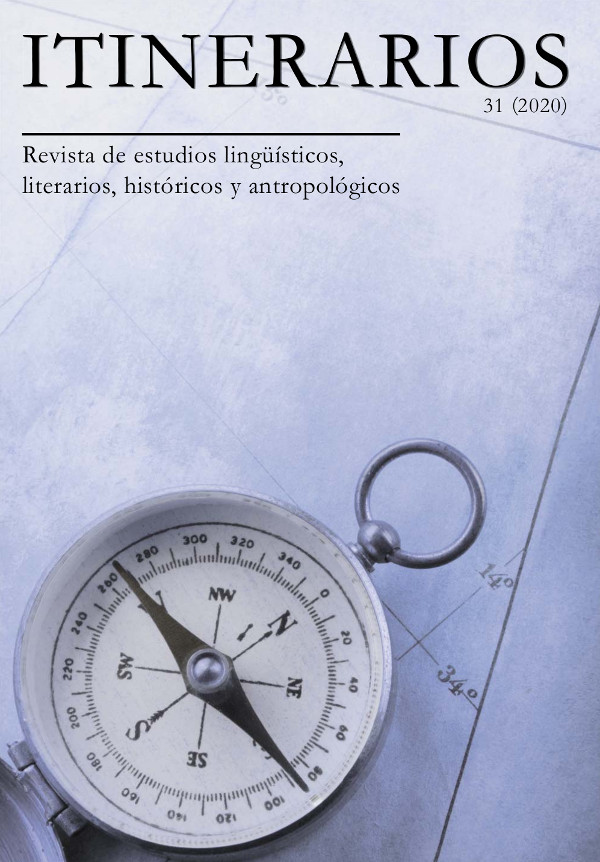Voces y transformaciones del monólogo y apreciaciones sobre Divino Pastor Góngora de Jaime Chabaud
Voices and Transformations of the Theatrical Monologue as a Theatrical Genre and Assessments about Divino Pastor Góngora by Jaime Chabaud
Author(s): Nidia M. VincentSubject(s): Studies of Literature
Published by: Instytut Studiów Iberyjskich i Iberoamerykańskich, Wydział Neofilologii, Uniwersytet Warszawski
Keywords: theater; monologue; Mexican drama; Jaime Chabaud; Divino Pastor Góngora
Summary/Abstract: The purpose of this article is to approach the monologue, a theatrical form hardly addressed by the critics and whose presence and importance in the current scene is increasing. To reach this objective, some prejudices, obvious ideas and characteristics of the theatrical monologue, as well as the terms to which the monologue is associated (soliloquy, aparte, unipersonal, monodrama, stand-up), are reviewed. Subsequently, a brief revision of the evolution of this genre in the Western theater is made, with an emphasis on the monologue as an autonomous work since the introduction of the realistic monodrama by Strindberg and O’Neill, and the contributions of the Theater of the Absurd. Likewise, the evolution of the monologue in Mexico from the colonial period to the contemporary times is briefly reviewed. In the last section the paper focuses on Jaime Chabaud’s play Divino Pastor Góngora (2001). Chabaud (1966) is a Mexican playwriter, member of the so-called “Generation of the 60s”. His Divino Pastor Góngora is a monologue set in the eighteenth century in the Viceroyalty of New Spain. Divino Pastor, the protagonist, is an unfortunate actor who has fallen into the hands of the justice, and from his confinement he reveals his history and performs a sainete. The analysis presented in this paper concerns the structure of the play, its multiple characters and monologue strategies, as well as its metatheatricality, humor and rich intertextuality.
Journal: Itinerarios
- Issue Year: 2020
- Issue No: 31
- Page Range: 185-207
- Page Count: 23
- Language: Spanish

